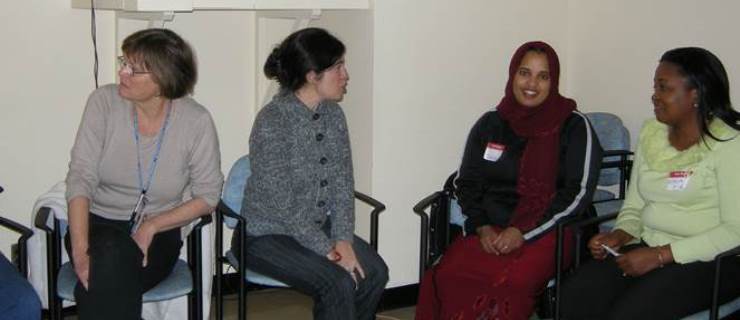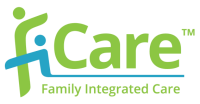Overview
A central objective of FICare is to encourage parents to spend extended periods of time in the NICU interacting with their infant, gaining knowledge, skills, and confidence in caring for their infant. In our studies to-date, we have encouraged parents to spend a minimum of 6 hours per day in the NICU where possible. We have also encouraged grandparents to get involved as much as possible. These videos highlight some of the key activities parents can be involved in.
Daily care plan
Bedside teaching with nurse
FICare emphasizes building a nurse-parent relationship where nurses act as coaches for parents and teach them how to perform daily caregiving activities for their infant. Through bedside teaching, parents gain confidence in providing care for their infant, e.g. bathing and dressing their infant, changing diapers, feeding, proper positioning, giving oral medications, and monitoring and charting their infant’s progress.

Participation in Rounds
Education sessions
A small group education program with a flexible curriculum provides parents with additional education to support them taking care of their infants in the NICU and beyond. Topics include: prematurity, infant development and developmental care, parenting and interacting with a preterm infant, parental coping, feeding, infection control, infant pain management, medications, discharge-planning, and self-care for parents.

Peer-to-peer support
Through the sharing of experiences, veteran parents or parents who are concurrently in the NICU help each other validate feelings, reduce isolation, and increase parents’ comfort interacting with medical professionals. Peer-to-peer support can help parents cope more effectively with the NICU experience.

Infant care
When parents are present, they can participate in their infant’s care, and feel more comfortable providing skin-to-skin care, establishing breastfeeding, and providing support to their infant during stressful or painful procedures. Maximizing skin-to-skin time is important for infant development and building a close infant-parent relationship. Over time, parents become more confident as caregivers facilitating a smoother transition to home.

Parent Charting
Parents are provided a number of tools that they can use to better communicate with the medical team and to record their infant’s progress. These tools include a parent chart/diary, skills checklist and a communication board in the infant’s room. Nurses partner with parents using these tools to enhance their information sharing. Charting allows parents the opportunity to reflect on their baby’s progress and to ultimately become more confident in reading their baby’s cues or subtle signs.

Example: Daily Parent Schedule

